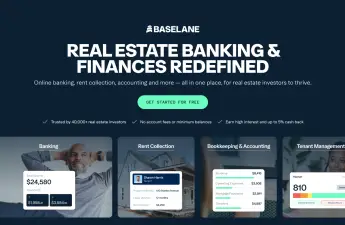Reaching the people who are searching for rentals is every landlord’s first priority when they’re faced with a vacancy – no tenants, no income! Zillow has broad recognition in valuing and listing residential real estate, both for sale and for rent. Zillow Rental Manager has added features and recently implemented a $29.99/week premium listing upgrade option. RentRedi is an established property management software product offering tools to streamline each stage of a tenant’s time as a renter. We’re comparing RentRedi vs Zillow Rental Manager so you can decide which features matter most, and which company provides the best value for your rental portfolio.
Update: This post has been edited to reflect Zillow Rental Manager pricing changes that took effect as of May 2022. Read on for more information.
- RentRedi is an all-inclusive landlord-tenant app. Manage vacancies, screening, and rent collection from wherever you are, on any device.
- Strength: Complete Solution
- Create and manage your rental listing in one place and have it post directly to Zillow, Trulia and HotPads listing platforms. Screen applicants, collect rent, and more.
- Strength: Advertising
Our comparison of RentRedi vs Zillow Rental Manager is broken down by the following categories:
- Advertising Vacancies
- Applications
- Tenant Screening
- Lease Documents and E-signing
- Rent Payments
- Pricing
- Maintenance Request Tracking
- Financial Tracking and Reporting
RentRedi vs Zillow Rental Manager Software Comparison:
| Feature | Our Favorite |
| Advertising Vacancies | Zillow |
| Applications | RentRedi |
| Tenant Screening | Tie |
| Lease Documents and E-signing | Tie |
| Rent Payments | RentRedi |
| Pricing | Tie |
| Maintenance Request Tracking | RentRedi |
| Financial Tracking and Reporting | RentRedi |
RentRedi vs Zillow Rental Manager for Advertising Vacancies
Zillow is one of the more popular internet listing platforms, with millions of visitors searching for rentals every month. They are also associated with Trulia and Hotpads, which also have significant user numbers. It is unsurprising, consequently, that Zillow Rental Manager has been experimenting with their rental listing fees. Currently, it is free to post a listing, but if you want increased exposure and higher positioning in search results for renters searching in your area, you must upgrade to a premium listing. This costs $29.99 for 90 days.
Also Read: Best Free Online Ways To Advertise Property For Rent
RentRedi makes it easy to create listings that live on their own site, and also syndicate (auto-publish) those same ads to Realtor.com and Doorsteps.com.
With Zillow Rental Manager now charging for property listings, and Zumper joining them, landlords face a bit of a quandry. Can they afford to advertise their rentals on just one of these platforms? Does it make financial sense to pay a-la-carte for listings on Zillow (which, in our opinion, is still a pretty simplistic software product overall) or select to pay a subscription fee for a more full-featured service such as RentRedi.
Also Read: RentRedi App: Property Management Software Overview
One issue we’ve had with advertising on Zillow’s sites is that people shopping for rentals find it very easy to send inquiries rapid-fire, without paying much attention to whether the unit is likely to be a good fit. We’ve often received duplicate inquiries and also found that there is a low follow-through rate when it comes to scheduling viewing. There’s a kind of “tire-kicking” phenomenon.
We also still advertise on Craigslist as well as the property management platform we’re using at the time. (We sample many in the interest of research for this site.) So far we’ve also advertised on Zillow, but we’re actively looking at the options, and the changing landscape.
Our take on RentRedi vs Zillow for advertising: In addition to vacancy listings we encourage you to take a look at features such as rent payment, financial tracking, and maintenance request management. Zillow is hard to argue with if all you’re looking for is vacancy advertising, however RentRedi has several features Zillow just doesn’t offer.
Advantage: Zillow
RentRedi vs Zillow Rental Manager for Applications
RentRedi and Zillow both make it easy for prospective tenants to apply for vacant units, asking similar questions about identity, employment, past residences, etc. Both RentRedi and Zillow have an app, which makes life easy for both landlords and applicants who are on the go.
RentRedi provides a very cool feature for pre-qualifying applicants who are interested in your property. Potential tenants are asked to answer ten pre-screening questions regarding financial information, guarantor’s income, criminal history, pets, and smoking habits. You then invite those applicants who meet the pre-qualification criteria to view the unit and/or apply, saving you precious time and energy.
RentRedi also tells you whether a prospective tenant is actually working on the application or has abandoned it, and lets you ask for updates.
Also Read: Cozy vs Avail vs TenantCloud Property Management Software Comparison
As we noted in the advertising section, we’ve found that rental shoppers coming from the Zillow sites sometimes don’t end up being very serious. We’ve found the same holds true when we let them apply directly from the listing page; we’ll sometimes get applications from people who haven’t seen or thought carefully about the unit we’re listing. For this reason we usually only invite people to apply who know they want the rental and have been pre-qualified by us. In the long run we save time by only screening applicants from renters who are serious.
Our take on RentRedi vs Zillow for Applications: Both platforms are a great way to collect the personal information needed to screen prospective tenants. We really like RentRedi’s pre-qualification feature, which weeds through rental shoppers so that you’re only reviewing strong candidates.
Advantage: RentRedi
RentRedi vs Zillow Rental Manager for Tenant Screening
Zillow and RentRedi both deliver comprehensive background and credit screening, including reports on evictions, criminal convictions, and financial history. Both platforms let landlords require that applicants order screening reports as part of the application process. Information is compiled and delivered in summary form.
Zillow uses Experian & Checkr for credit and background checking, while RentRedi uses TransUnion’s tenant screening product. For more in-depth information on the best screening services please see the article below.
Also Read: The Best Tenant Screening Service for Small Landlords
While landlords choose who pays for screening reports – themselves or applicants – with some other software products, both RentRedi and Zillow default to tenant-pay. Applicants via Zillow pay a fee of $29 and have the ability to share these reports with other landlords for a span of 30 days.
Our take on RentRedi vs Zillow for Tenant Screening: These offerings are very comparable. We do, however, like the fact that it isn’t quite as easy for applicants via RentRedi to apply to a wide range of units for the cost of one screening fee. Landlords can have some confidence that an applicant is serious about their rental because they’ve gone through the time and expense of applying for it specifically.
Advantage: Tie
Lease Documents and E-signing
Where it comes to the legal documents we all need to protect ourselves as landlords, we think two functions are valuable: 1. Location-specific leases that comply with current laws wherever your property lies, and 2. Easy remote electronic signing.
Zillow does have a lease-builder wizard. Basic functions addressing issues such as lease start/end dates, pets, or smoking are implemented, however truly localized leases are available only in Colorado, Florida, Oregon, Alabama, Mississippi and select areas of Illinois.
Also Read: Residential Lease Agreements: Best Software for Small Landlords
With Zillow landlords can upload their own lease documents and have applicants sign them electronically online. RentRedi has the added convenience of app-based signing, and landlords can automatically require that tenants upload a valid government-issue ID that proves their identity.
Our take on RentRedi vs Zillow Rental Manager for Lease Agreements: Neither platform delivers all the features we’d ideally like where it comes to lease documents and electronic signing. If you live in a region where Zillow has leases tailored to local laws then their product might be for you. If not, we think RentRedi’s app is really slick, and value the ease of signing from wherever you find yourself.
Advantage: Tie
Rent Collection
Collecting rent is one of the most attractive features offered by property management software products. Electronic rent payment is secure, easy, contact free (covid!), and auto-pay features greatly reduce late rent.
Zillow Rental Manager provides electronic rent collection that’s free for landlords. Once a tenant has linked their bank account to the system then can make either one-time or recurring scheduled payments. Funds are deposited directly to the landlord’s bank account within 3-5 business days. ACH (electronic bank-to-bank transfer) payments are free for landlords and tenants alike. Residents who wish to pay by credit card pay a 2.95% transaction fee, or a $9.95 convenience fee for debit cards.
Also Read: The Best Online Rent Payment Service for Small Landlords
Also Read: PayRent Online Rent Payment Service
RentRedi makes paying rents extremely easy, all from the convenience of the RentRedi mobile app. There is a processing fee of $1.00 for ACH payments or 2.9% plus $.30 for credit or debit card transactions. Landlords choose who pays transaction fees; themselves or tenants. RentRedi makes it easy for residents to set up recurring payments, and the platform automatically charges late fees when rent goes unpaid. Funds take 1-3 days to arrive in a landlord’s bank account.
A unique feature RentRedi offers is the ability to block or only accept partial payments from renters. This comes in handy where local laws state that acceptance of payment means that property owners cannot proceed with the eviction process.
Our Take on RentRedi vs Zillow Rental Manager for Rent Collection: On the surface Zillow’s rent collection is easy and free. We like the added features RentRedi offers, including automatic late fees, quick transaction processing, and the choice to block or limit payments. Plus, RentRedi lets landlords direct rent to multiple bank accounts.
Advantage: RentRedi
Maintenance Request Tracking
One of the most labor-intensive and stressful elements of being a landlord is dealing with maintenance requests. Dealing promptly with these requests keeps your residents happy, lowering turnover and reducing financial losses associated with vacancies.
Staying on top of routine maintenance keeps your buildings in good condition and saves money in the long run. While managing repairs and upkeep can be overwhelming, especially when you are managing multiple properties, it is both a landlord’s responsibility and good business.
RentRedi Maintenace Tracking Features:
RentRedi features tools to organize and streamline property maintenance tasks. Tenants submit repair requests through the app and include photos and video of the problem they’re reporting. Landlords categorize and prioritize the work through their online dashboard. Service team members and outside contractors can have their own free accounts, making it easy to bring them into the loop. Furthermore, the app provides a maintenance calendar that syncs with Google calendar making organization quick and easy.
Also Read: Manage Maintenance on Rental Property using Property Management Software
Zillow Property Manager does not support maintenance requests or communication between landlords or tenants.
Our Take on RentRedi vs Zillow Rental Manager for Maintenance Requests: The big thing we like about managing maintenance using property management software is that it helps organize all tasks in one place and coordinate communication between tenants and repair people. RentRedi provides these benefits whereas Zillow does not.
Advantage: RentRedi
Pricing
RentRedi and Zillow approach pricing in very different ways. Zillow charges landlords for an upgraded premium listing whereas RentRedi requires a paid monthly membership.
RentRedi Pricing Options:
- Monthly: This pay-as-you-go option costs $29.95/month; renews every month.
- Six-month: Get a better deal at $19.95/month; renews every six months.
- Annual: Get the best rate at $12/month; renews annually (every 12 months)
Zillow Pricing:
Until recently Zillow Rental Manager was free, which made it a popular listing site for landlords. As we’ve discussed earlier, Zillow started charging its users a $9.99 weekly fee for each unit actively listed on their websites. Now, listings are free again, but if you wish to upgrade to a premium listing, the new fees are $29.99 for 90 days.
If you upgrade to a premium listing, your listing will have increased exposure and will be positioned higher in search results for renters searching in your area.
Additionally, you have access to customized insights on pricing, performance, and the leads you receive. Zillow will also give you recommendations to help optimize performance of your listing to fill your vacancy faster.
Finally, you will have access to priority support from Zillow.
Our Take on RentRedi vs Zillow Rental Manager Pricing: If you’re a landlord who has very occasional vacancies and doesn’t want additional features such as maintenance management, then Zillow may be your best bet. We, however, believe RentRedi is a better start-to-finish management platform. It also doesn’t take many vacancies on Zillow to pay for a year-long RentRedi subscription.
Advantage: Tie (it’s subjective!)
Financial Tracking and Reporting
Many property management apps offer some sort of financial tool to help track income and expenses. Using Zillow landlords are limited to linking one bank account, so income from all properties will get comingled. Other than online records of rent deposits Zillow does not offer any financial tracking features.
Also Read: Reporting and Accounting Tools: Best Accounting Software for Landlords
RentRedi lets landlords connect to as many bank accounts as they want. Each property, or even unit, can be linked to the most relevant account. Come tax time all a landlord needs to do is export categorized transactions to a spreadsheet or Quickbooks.
Our Take on RentRedi vs Zillow Rental Managerfor Financial Tracking and Reporting: Landlords choose to handle bookkeeping and accounting in many different ways. Zillow offers no features beyond rent collection, whereas RentRedi makes it easy to export data to your third party software. If you’re focused on accounting software for landlords read more here.
Advantage: RentRedi
Takeaway
Zillow Rental Manager has the potential to bring many eyeballs to your vacancy listing, which is very important. As we often conclude, choosing the best property management software for your purposes involves looking at all the features that’re available and deciding what is most important to you. If advertising vacancies alone is your focus – and you don’t have too many of them per year – then Zillow is a strong choice. RentRedi offers additional features where it comes to rent collection, maintenance requests, and financial tracking. Knowing your priorities will help you make the best choice…
- RentRedi is an all-inclusive landlord-tenant app. Manage vacancies, screening, and rent collection from wherever you are, on any device.
- Strength: Complete Solution
- Create and manage your rental listing in one place and have it post directly to Zillow, Trulia and HotPads listing platforms. Screen applicants, collect rent, and more.
- Strength: Advertising
Disclosure: Some of the links in this post are affiliate links and Landlord Gurus may earn a commission. Our mission remains to provide valuable resources and information that helps landlords manage their rental properties efficiently and profitably. We link to these companies and their products because of their quality, not because of the commission.






